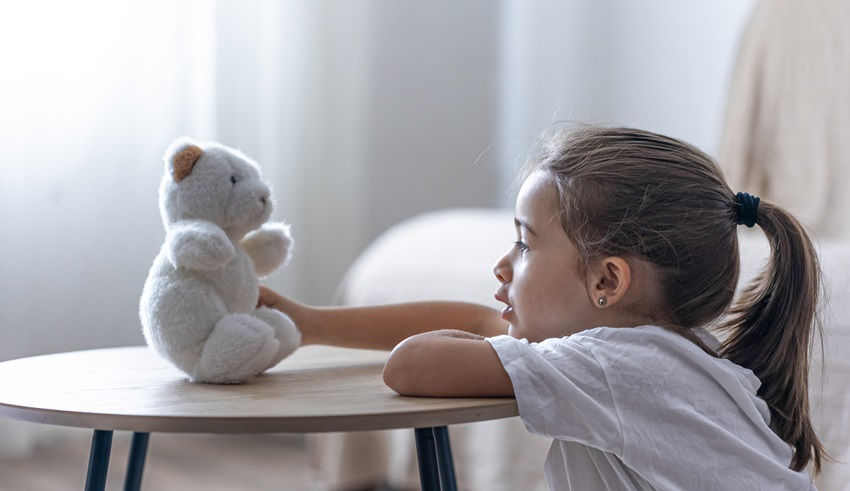BUDAPEST, Hungary — Self-perceived loneliness during childhood is linked to a more than twofold increased risk for subsequent first-episode psychosis (FEP) — new findings that may point to a novel marker for the disorder.

The association between loneliness and FEP "appears to extend beyond the effects of objective social isolation," said study presenter Covadonga M. Díaz-Caneja, MD, PhD, Institute of Psychiatry and Mental Health, Hospital General Universitario Gregorio Marañón, Madrid, Spain, and "is particularly pronounced in females."
"These findings suggest the potential of childhood loneliness as an early risk marker for psychosis that could help guide targeted interventions," she added.
The results were presented here at the European Psychiatric Association 2024 Congress.
Isolation a Major Risk Factor
There are two components to isolation, both of which are "major risk factors" for morbidity, mortality, and the onset of mental disorders, said Díaz-Caneja.
The first is "objective social isolation," which consists of a demonstrable lack of social connections, including social interactions, contacts, and relationships, while the other is a perceived sense of isolation, or "loneliness," defined as a "subjective feeling of distress associated with a lack of meaningful relationships," regardless of the amount of actual social contact an individual experiences.
Childhood loneliness occurs before age 12 and is becoming increasingly prevalent, said Díaz-Caneja. A recent survey shows that approximately one third of children report they often feel lonely.
Genetic and observational research has shown there is a bidirectional relationship between loneliness and psychosis and that patients with schizophrenia are more likely to report loneliness than the general population.
Díaz-Caneja noted that there is no previous research that has assessed the potential association between childhood loneliness and subsequent psychosis.
To investigate, the researchers conducted an observational, case-control study in seven university hospitals in Madrid. It included individuals aged 7-40 years, including FEP patients with a psychosis duration of less than 2 years, and healthy controls from the same geographic areas.
They assessed childhood objective social isolation using the Premorbid Adjustment Scale and examined childhood loneliness with the single item: "Have you ever felt lonely for more than 6 months before the age of 12?"
A range of measures and questionnaires were also administered to assess participants' symptom scores, alongside the Global Assessment of Functioning (GAF).
Alone vs Lonely
Two hundred eighty-five patients with FEP participated in the study. They had a mean age of 24.5 years, and 32.6% were female. The study also included 261 healthy controls (average age, 25.9 years; 48.7% female).
After adjusting for age, gender, ethnicity, and socioeconomic status, loneliness during childhood was associated with a significantly increased risk for FEP (odds ratio [OR], 2.17; 95% CI, 1.40-3.51), which increased (OR, 2.70; 95% CI, 1.58-4.62) after further adjustment for objective social isolation.
Further analysis revealed that in those who did not have objective social isolation in childhood, loneliness was associated with a significantly increased risk for FEP (OR, 2.68; 95% CI, 1.56-4.60).
However, the relationship between loneliness and FEP was not significant in participants who were objectively socially isolated during childhood (OR, 0.33; 95% CI, 0.08-1.45).
Compared with males, females reporting loneliness had a markedly increased risk for FEP (OR, 4.74; 95% CI, 2.23-10.05 vs OR, 1.17; 95% CI, 0.63-2.19).
However, females had a reduced risk of receiving a diagnosis of schizophrenia spectrum disorder (OR, 0.155; 95% CI, 0.048-0.506), indicating that loneliness influenced the type of diagnosis, she noted.
There was a significant positive relationship between loneliness in childhood and symptom scores in men, and a negative association with GAF scores in men.
Díaz-Caneja noted that the study is preliminary and a "work in progress." The investigators plan to increase the sample size and will conduct more complex analyses, she said.
"We also of course have to bear in mind that it is a cross-sectional study and that there may be some kind of recall biases [because] we are asking patients now about what happened in the past."
She also noted that it's unclear whether the results can be extrapolated to individuals who are currently experiencing loneliness because "the determinants of loneliness 10 years ago or 15 years ago may be different."
Note: This article originally appeared on Medscape





Comments